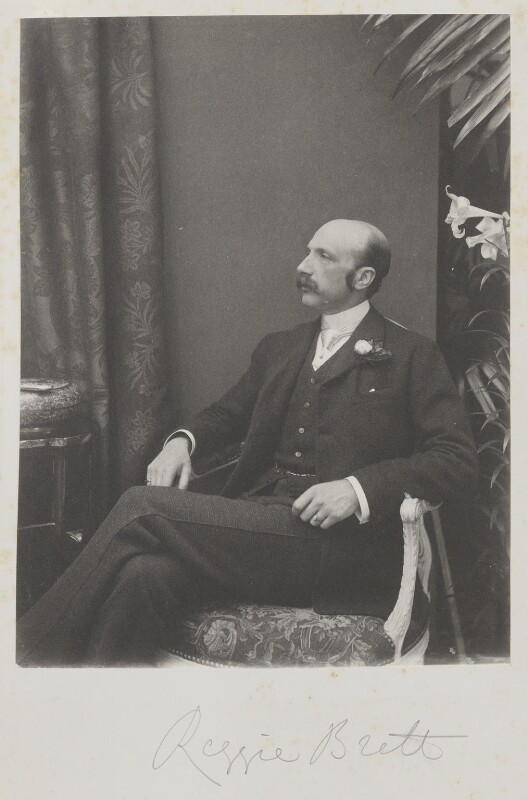

Queer Places:
Eton College, Windsor SL4 6DW, Regno Unito
University of Cambridge, 4 Mill Ln, Cambridge CB2 1RZ
1 Tilney St, Mayfair, London W1K, Regno Unito
Christ Church, Church St, Esher KT10 8QS, Regno Unito
 Reginald Baliol Brett, 2nd Viscount Esher, GCVO, KCB, PC, DL (30 June 1852
– 22 January 1930) was a historian and Liberal politician in the United
Kingdom, although his greatest influence over military and foreign affairs was
as a courtier, member of public committees and behind-the-scenes "fixer", or
rather éminence grise.
Reginald Baliol Brett, 2nd Viscount Esher, GCVO, KCB, PC, DL (30 June 1852
– 22 January 1930) was a historian and Liberal politician in the United
Kingdom, although his greatest influence over military and foreign affairs was
as a courtier, member of public committees and behind-the-scenes "fixer", or
rather éminence grise.
At Eton he was one of the favoured circle of William Johnson Cory. Later, in retirement, Esher wrote a tribute to him, Ionicus, which tells one much, and even more, reading between the lines. From the time he was at Eton, apparently he had a companion to share his tastes and add a further dimension to the enjoyment of life. Apparently the diaries are explicit on the subject. When A.L. Rowse met his daughter, Dorothy Brett, friend of D.H. Lawrence at Taoes, where she kept guard over his tomb beneath the mountain, she said: "I suppose you know what was what about my father?" Rowse said that he wasn't unaware of the facts of life. She responded that people wanted his biography written; his son, the 3rd Viscount, had objected, "and now that he is dead, I don't see any objection; do you?"
In 1879, Reginald Brett married Eleanor Van de Weyer, daughter of Belgian ambassador Sylvain Van de Weyer and granddaughter of Anglo-American financier Joshua Bates. They had four children.
Although married with children, Esher had homosexual inclinations but his flirtations with young men were regarded with tolerant amusement in polite society. The years before his marriage had been marked by a series of what Esher described as 'rapturous' love affairs with various young men. His subsequent marriage in no way stopped or curtailed these activities. Indeed he could not, he told a friend, remember a single day when he was not in love with one young man or another. He later published anonymously a white-covered book of verse called Foam, in which he glorified 'golden lads'.
My published books: